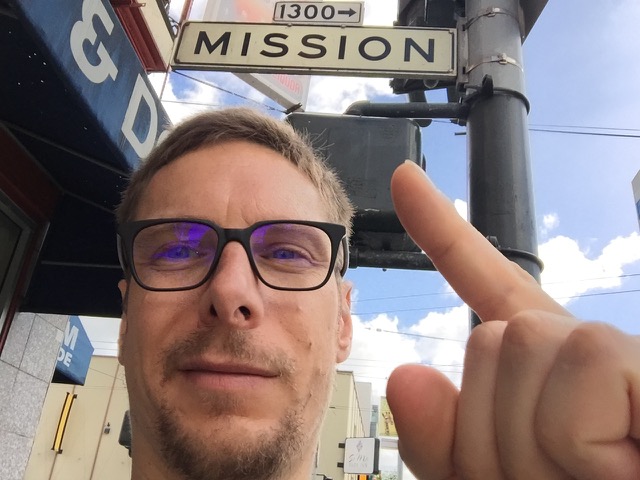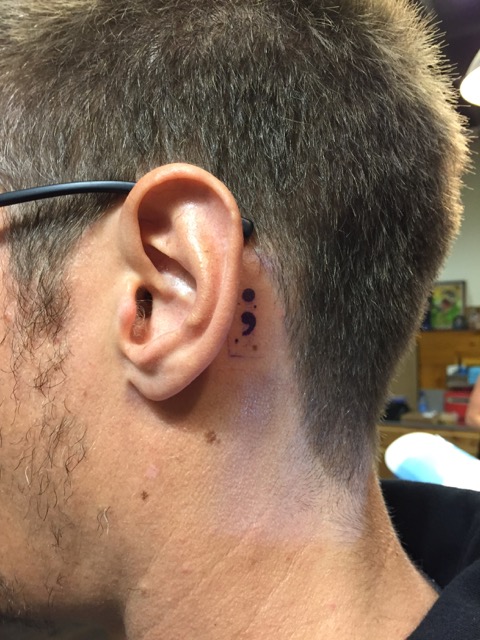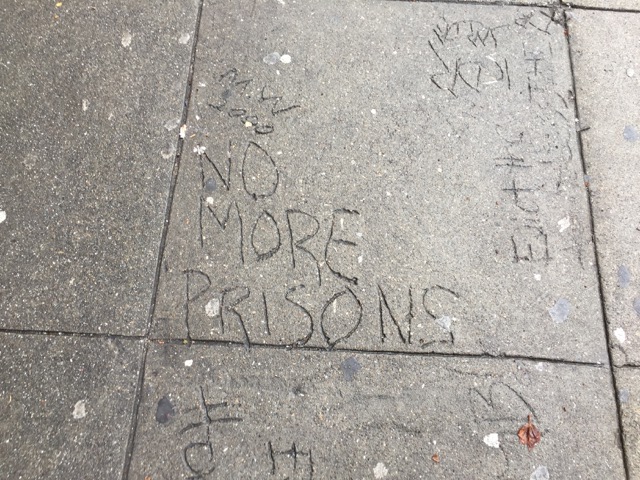This is a story about self sabotage...

What the hell am I doing, blogging about stuff that could get me fired, sued and make me unemployable? Why the hell am I burning so many bridges, and destroying my own reputation? Is this simply self-sabotaging behaviour?
If we look at the wider context of my story, the rat race has made me unwell. The boring office jobs propping up the instruments of capitalism so that an idle wealthy elite can ride roughshod over the proletariat, has made me unhappy. Compromising on my moral, ethical position, five days a week is not healthy. Working in an unstimulating environment that is unchallenging and uninteresting is a fate worse than death.
It's very easy to keep doing what you do because you fear change and it's the path of least resistance. I've been moulded into a certain career and industry sector. I'm the perfect guy to have join your massive corporation and quickly get up to speed with the bureaucracy, systems and processes. The bulk of the hard work in a big organisation is not the actual skilled thing that people are qualified to do, but just dealing with the crap that gets built up by a zillion little Hitlers all micromanaging their tiny empires they're building and trying to justify their pathetic jobs.
It's interesting who I'm friends with on Facebook, and who follows me on Twitter. In fact, with very little digging you can even find this vast cache of dirt, on Google. This is not about how important and influential I am, because I'm not. This is about public exposure. I took a decision to lay my soul bare, and I stand by that decision. But, for a moment, let's consider the kinds of people who I know or suspect have at one time dipped into my social media and online accessible over-sharing:
- Ex colleagues from JPMorgan
- Ex colleagues from HSBC
- Cohorts from a technology startup accelerator
- Two influential and well respected directors of startup accelerators
- Mentors from startup accelerator
- My accountant
- People who are influential and well respected in the technology sector
- Friends who work in tech and/or industry sectors that I work in
I've stopped short of actually tying my LinkedIn profile back in this direction, towards my blog. I've stopped short of in any way linking my limited company back towards this new alter ego of mine, although I did briefly get myself in a muddle over some suicide watch startup idea that I had. That was on September 21st... right when I started this journey of deciding to go public with every struggle I faced when I finally lost my grip on my career, my company, my reputation, everything.
For sure, I'm a nobody. However, people still talk. There is a rumour mill, no matter how small and insignificant you are. And people who work in offices are particularly interested in lurid tales of people who're doing anything that is out of the ordinary, even if that's losing your mind and ending up in the gutter.
By now, my tale of the toxic combination of stress, abusive relationship, mental health problems, heavy drinking, drug abuse (in that order) leading to suicide attempts, hospitalisation, homelessness, destitution and even police involvement, is well documented.
Well, I guess it's not that well documented, but it's out there in the public domain.
I have no idea how much was known before I decided to embark upon a mission of full disclosure, but I know that my abusive ex-wife was particularly indiscreet and insensitive. I'm sure that my friends did their best to save my blushes and protect my reputation as much as they could, but people still knew that I was getting more and more unwell.
Obviously, at times during my descent into melancholy and the infinite madness, I sabotaged my own reputation amongst my Facebook friends. I once shared a picture of some potassium cyanide that I had bought with the express intention of ending my life quickly and cleanly. The lethal dose is about 250 milligrams. I bought 2 grams of the toxic chemical: 8 times more than was strictly necessary.
Depression now has less stigma associated with it. We pretty much all know somebody who suffers with depression, and takes anti-depressant medication to help them with their low mood. These things are no longer taboo to talk about, and many people are able to still continue to hold down good jobs and be in positions of responsibility. Suffering from clinical depression is not a death sentence, certainly as far as a person's professional reputation is concerned.
Bipolar disorder has almost become cool to have. There are a list of celebrities and politicians as long as your arm, who have come forward and declared that they are living with the condition. Obviously, the ability to turn your hypomanic episodes into hyper-energetic flurries of productive activity, means that you can get shit done. In a way, we celebrate the person who has these mood episodes, because they can produce the 'overnight' successes we so revere in society.
Alcohol is everywhere, so unless you're swigging from a bottle of vodka hidden in your desk and reeking of liquor fumes as you breathe on people, just about any amount of drinking is socially acceptable. It's only if you declare yourself an alcoholic and have a stay in rehab that people start to stigmatise you. You can cover up your 28 days in The Priory, by saying that it was private hospital treatment for stress and anxiety.
Drug abuse is the last taboo. You pretty much don't want to put that one down on your CV. Cocaine use is widespread throughout London, and coffee gets stronger and stronger to the point where you're practically swallowing amphetamines. A few cans of Red Bull is the socially acceptable equivalent to snorting a couple of lines of some stimulant. Students are increasingly using Modafinil, Ritalin and Adderall to improve their concentration span and fact retention, as well as to stay awake during long revision binges.
If you think that these things feature in my daily life, you're wrong. These issues are simply incompatible with day-to-day existence. Depression robs you of the energy to get out of bed and face the day. Bipolar hypomania robs you of the contents of your bank balance, as it all gets ploughed into crazy schemes. Alcoholism is hard to hide, not that I've ever been physically dependent on booze, thank God. Drug addiction is all-consuming: there's no hiding it when you've lost the battle with addiction and it's taking you on a white-knuckle ride to an early grave.
So, if I've won the battles, why would I make it public knowledge that I fought them? Why would I take the time to declare, beyond all reasonable doubt, that I'm a flawed individual? Why would I spell it out, that I could relapse into any number of life-destroying illnesses at any moment?
Well, we could all succumb to these things at any moment.
I was 28 years young when I was knocked flat by clinical depression. I was 32 when addiction got its hooks in me. Just because I'd been a good student, a well behaved polite boy, a model employee, a career go-getter, and on the face of it I had a perfect little life, it doesn't mean that I was immune from anything.
But "it could never happen to me" right?
We believe that smart life choices will keep us safe. We believe that we have free will, and that therefore we would never choose to do something stupid. We believe that past performance is indicative of future results, even if the disclaimers always tell us the opposite.
There's something ugly about academic and corporate life, where we put a black mark against people's name if they fuck up even once. Screw up your school exams and you'll never get a chance to go to university. Screw up in your career and you'll be frozen out of the good jobs forevermore. Screw up in life and you'll be a dirty leper who nobody will want to know or to help.
This is the bleak outlook for so many people, who were simply unlucky or made a decision that was obviously regrettable, but life is continuously setting us traps and pitfalls. Why do consequences have to be so long lasting? Oh, you got in financial trouble? Here, let us help you by now charging you fines and punitive rates of interest, plus denying you opportunities and making the cost of living sky high because you have a poor credit rating.
The punishment for not having any money is that you have to pay more money. The punishment for your crimes is the deprivation of your liberty and the destruction of your future opportunities.
Apparently people are mocking those who have chosen to get a semicolon tattoo, but let's think about this for a minute.
I work in a big office and I see hundreds of people every day. In all likelihood they have seen that I have a semicolon tattooed behind my ear. If you were to Google "what does a semicolon tattoo mean?" then you will see that it's mostly to do with struggles with depression, addiction, self-harm and suicide attempts. I wonder how many people are thinking "why the hell did we employ this guy?".

When I did my interview, I sat so that my interviewers were on my right-hand side. The people who interviewed me never saw that tattoo, until soon after I started in my new job. I wonder if they'd have hired me if they had seen the tattoo.
Tattoos are actually uncommon amongst investment banking IT consultants. Certainly visible tattoos are even declared as not permitted, in many banks dress codes. I even thought about putting a sticking plaster over the mark on my skin, for my interview.
However, that's all I ever did for years and years. That's our whole approach to mental health and the problems that people face in their private lives: put a sticking plaster over it.
I've written at length about how angry I am that our first line of defence for people who are stressed out and depressed by their shitty unfulfilling office jobs, is to give them powerful psychoactive medications that artificially alter their mood so they can continue to work their dreadful jobs.
I'm angry that I'm so pressurised by wider society to cover up my problems, in order to retain a blemish-free reputation. I feel like the need to appear pristine and infallible to potential employers, fellow work colleagues and bosses, is largely to blame for why I had a massive breakdown and implosion, instead of things getting fixed before they got out of hand.
We are brainwashed to believe that we can't have any gaps on our CV that we can't explain. We are brainwashed to believe that we can't take our foot off the gas pedal for a single second. We are brainwashed to believe that a stain on our reputation will hang around for the rest of our careers.
You know what the problem is? It's our fucking careers. The treadmill. The rat race. It's making so many people mentally unwell, as well as causing physical health damage due to the sedentary nature of the work. No amount of standing desks or free gym membership is going to compensate for the problem.
I backslid into office employment because it was easy and I was desperate. My back was against the wall, and it made perfect financial sense to go and suffer another stretch of agonising misery back doing the shit that I'm most qualified and experienced to do, but it's fucking killing me.
It's important to be values-aligned, but it's also so easy to be tempted by 'easy' money. The cash rewards for doing the kind of mind-bogglingly boring work that I do are substantial. In theory, I only have to do this work for short bursts, and then I have spare time and cash to do whatever I need to do to balance the books, psychologically. However, in practice, all I'm doing is servicing debts that were built up just staying alive.
The welfare state took a dim view on my situation. Why do I need help, when I can go and get a job that pays fabulously well? Well, guess what? I tried it. I tried getting one of these shitty desk jobs that kill me, while I was homeless living in a hostel. And guess what? Working one of those jobs that made you unwell in the first place while you are still unwell really fucks you up.
This whole exercise of blowing my existence and private life wide open serves to document the ridiculousness of the mental health destroying lives that we are forced to live. If this whole experience ends up killing me, at least I've left the evidence: the smoking gun.
Nobody really cares when white middle class, well educated men in good jobs kill themselves. Why would they? Well, look around you. Do you see people getting happier? Do you see mental illness declining? Do you see suicide rates declining? Do you feel secure, fulfilled? Do you feel like the human condition is improving?
I look around and I see war and I see poverty. I see ordinary British people being forced into zero hours contract minimum wage McJobs, and still unable to afford basic amenities. I see loneliness and depression. I see a lack of real local community. I see families pulled apart by the need to go to large urban centres to seek your fortune. I see people locked into their own little world: headphones plugged in, eyes cast downwards at their smartphone, not talking to anybody face to face except to ask for their morning coffee.
Is this just a London thing? Is my view tainted because I'm struggling with depression myself? Actually, London is the canary in the coal mine. The sensitive people who have their head up looking around, sensing for danger, are usually on to something. Everything is pretty shit and fucked up right now.
And so, I am rejecting the conventional. I'm rejecting the sensible, rational and tried-and-tested. I'm burning the bridges that lead back to places I should never return to.
Yes, I might be making a fool of myself. Yes, people might be sniggering at me, safe behind their computer screens. Yes, important people are judging me and they have the ability to thwart me because of their prejudice, and make my life hard and even impossible. I could find myself unemployable, but not know why, because nobody has to tell me. I'm giving away all the ammunition you need to destroy me, and people are eagerly taking it.
But you know, who's the real winner? If you take what I gave you and use it against me, how are you going to feel? We're all doing that. We're all exploiting weaknesses that we discover in each other, in order to get ahead in the rat race.
How do you win a rigged contest? If everybody is cheating, do you cheat too?
The other option is to martyr yourself. For sure, you'll be hated and excluded. Nobody will thank you. But at least you can sleep at night, in the gutter.

Prisons can mean anywhere you feel trapped and your liberty is restricted
Tags: #career #london #computing #banking #depression #suicide #mentalhealth
